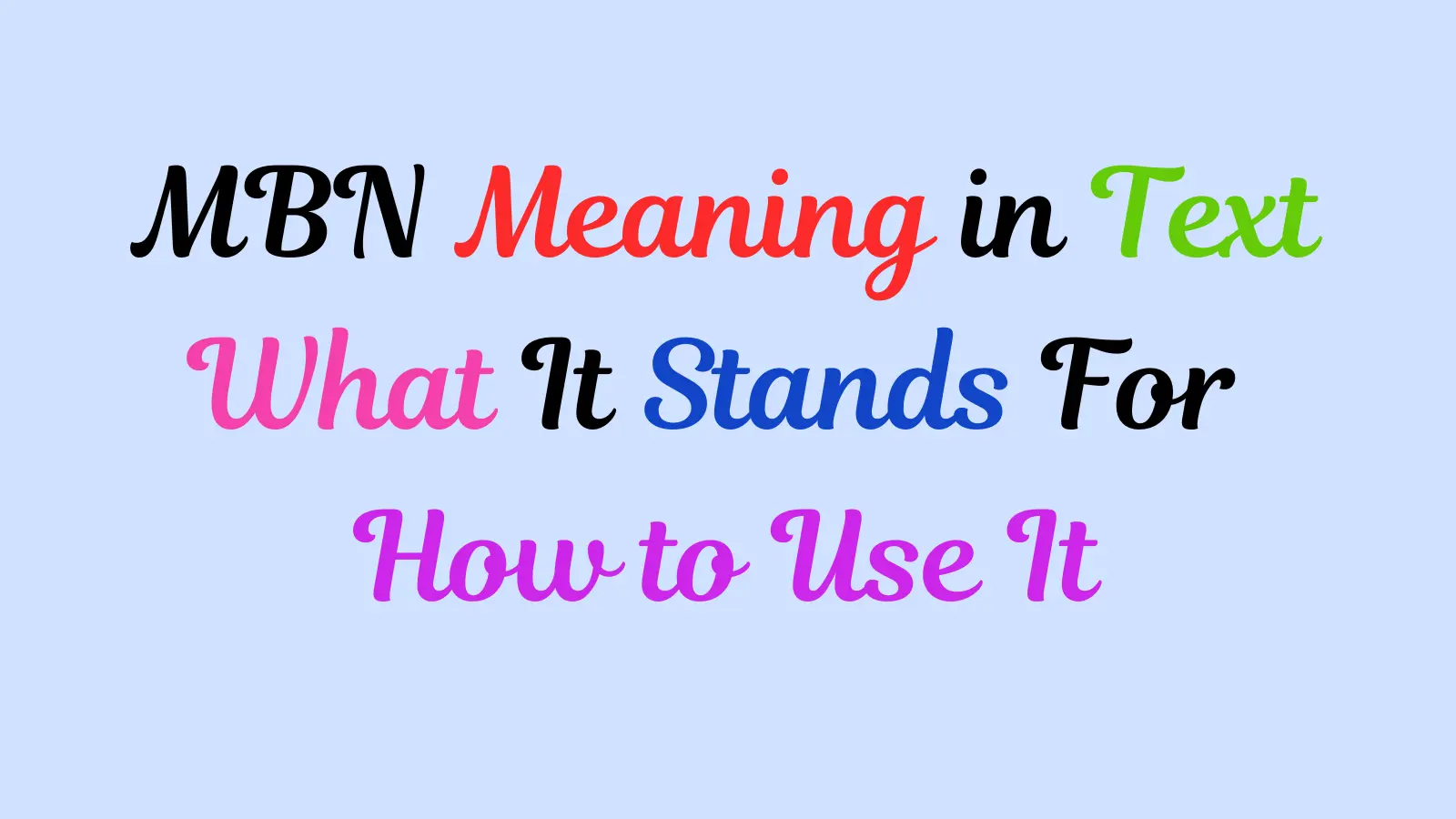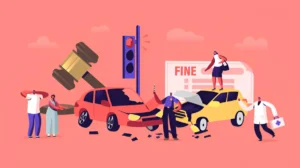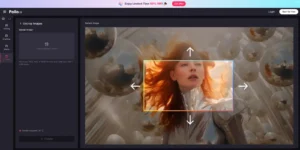In digital communication, acronyms and slang abbreviations dominate text messages and social media.
One such term is MBN, which frequently appears in conversations, but its meaning might not be immediately clear to everyone.
Understanding MBN is crucial, especially for those trying to keep up with modern slang and online lingo.
Whether you’re scrolling through Twitter, chatting on Instagram, or texting a friend, knowing the meaning of MBN helps you interpret messages correctly.
But what exactly does it stand for? How did it originate, and how is it used across different contexts?
This article will break down the meaning of MBN, its history, usage, common misunderstandings, and alternatives to ensure you’re well-versed in this widely used slang term.
Definitions & Meaning
MBN is an acronym for “Must Be Nice.” It is often used to express envy, admiration, or sarcasm when reacting to someone else’s situation. The tone of MBN can vary depending on the context:
- Genuine Admiration – “Wow, you’re going on vacation again? MBN!”
- Mild Envy – “You got free tickets to the concert? MBN, wish I could go.”
- Sarcasm – “You don’t have to work today? MBN, some of us have bills to pay.”
Since MBN is short and easy to type, it has become a popular way to react to posts on social media or in casual text conversations.
Origins & History
The use of MBN in texting and social media evolved as internet slang grew in popularity. While the exact origin is unclear, it likely emerged in the early 2000s alongside other shorthand expressions used in digital communication.
Before acronyms like MBN became popular, people expressed similar sentiments through full sentences, such as “That must be nice” or “It must be nice.” However, as texting and online messaging encouraged brevity, these phrases were shortened to MBN for quick responses.
Platforms like Twitter, Instagram, and Snapchat contributed to the spread of MBN, as users frequently reacted to posts about luxury, travel, or personal success with the abbreviation. Over time, it became widely understood, making its way into everyday conversations.
Usage in Different Contexts
1. Social Media & Text Messaging
MBN is commonly used in casual text conversations and social media comments.
- Example (Instagram Comment):
- User 1: “Just landed in Paris for the weekend!”
- User 2: “MBN! Enjoy your trip!”
- Example (Text Message):
- Person 1: “I got promoted at work today!”
- Person 2: “Congrats! MBN, I’m still stuck in the same position.”
2. Professional & Work Contexts
While MBN is primarily informal, it occasionally appears in workplace chats or Slack messages among colleagues, typically in a lighthearted way.
- Example: “You finished your project early? MBN, I’m drowning in work.”
However, using MBN in professional settings requires caution, as it can sometimes be misinterpreted as passive-aggressive.
3. Pop Culture & Memes
MBN is frequently used in meme culture to express envy humorously. Many social media users share images or videos with captions like:
- “Got paid today? MBN, I’m still waiting for payday.”
- “Your pet actually listens to you? MBN, mine ignores me.”
These posts often highlight relatable struggles, making MBN a staple in internet humor.
Common Misunderstandings & Clarifications
Although MBN is widely used, some misunderstandings exist:
- MBN does NOT mean “My Bad, No” – Some people mistakenly think MBN is an apology-related phrase. However, it has nothing to do with admitting fault.
- Not always sarcastic – While MBN is often used with sarcasm, it can also be a sincere way to acknowledge someone’s good fortune.
- Context is crucial – The meaning of MBN depends on tone and situation. Reading the surrounding message carefully helps determine whether it’s genuine or passive-aggressive.
- Not suitable for formal writing – MBN is purely informal and should not be used in emails or professional documents.
Alternatives & Synonyms
If you want to express the same sentiment as MBN but in different ways, consider these alternatives:
- “Lucky you!” – A more direct way to express envy.
- “Wish I could relate.” – A lighthearted alternative that conveys a similar feeling.
- “That’s awesome for you!” – A neutral and positive way to acknowledge someone’s luck.
- “Good for you.” – Depending on the tone, this can be either genuine or sarcastic.
- “Must be great.” – Another variation that keeps the same meaning as MBN.
Choosing the right alternative depends on the tone you want to convey—whether genuine, humorous, or sarcastic.
Frequently Asked Questions (FAQ)
1. What does MBN stand for in text messages?
MBN stands for “Must Be Nice.” It’s used to express admiration, envy, or sarcasm in response to someone’s situation.
2. Is MBN a positive or negative phrase?
It depends on the context. It can be positive when used sincerely, but it can also be sarcastic if used in a passive-aggressive way.
3. Can MBN be used in professional settings?
MBN is an informal expression and is best avoided in professional emails or workplace communication unless used in a casual, friendly manner among colleagues.
4. How do I know if someone is using MBN sarcastically?
Look at the context and tone of the conversation. If the message seems passive-aggressive or exaggerated, it’s likely sarcastic.
5. What are some other abbreviations similar to MBN?
Similar expressions include “LU” (Lucky You), “SMH” (Shaking My Head), and “IDK” (I Don’t Know). These acronyms are commonly used in digital conversations.
6. Is MBN commonly used in social media?
Yes, MBN is widely used on Twitter, Instagram, Snapchat, and TikTok as a quick reaction to posts about vacations, promotions, or personal achievements.
7. Can I use MBN in everyday speech?
While MBN is mostly text-based, some people say “must be nice” aloud in conversations to express the same feeling.
Conclusion
MBN, meaning “Must Be Nice,” is a widely used internet slang term that conveys admiration, mild envy, or sarcasm. It originated from the need for quick and expressive communication, spreading across social media, texting, and memes.
While MBN is generally informal, it serves as a relatable way to react to good fortune or luck. Understanding the tone and context is essential to avoid misunderstandings. If you ever find yourself feeling a mix of admiration and envy, now you know exactly how to express it—MBN!

Alexander offers a creative collection of unique pick-up lines, designed to spark conversation and charm. Perfect for those looking impress someone special.










